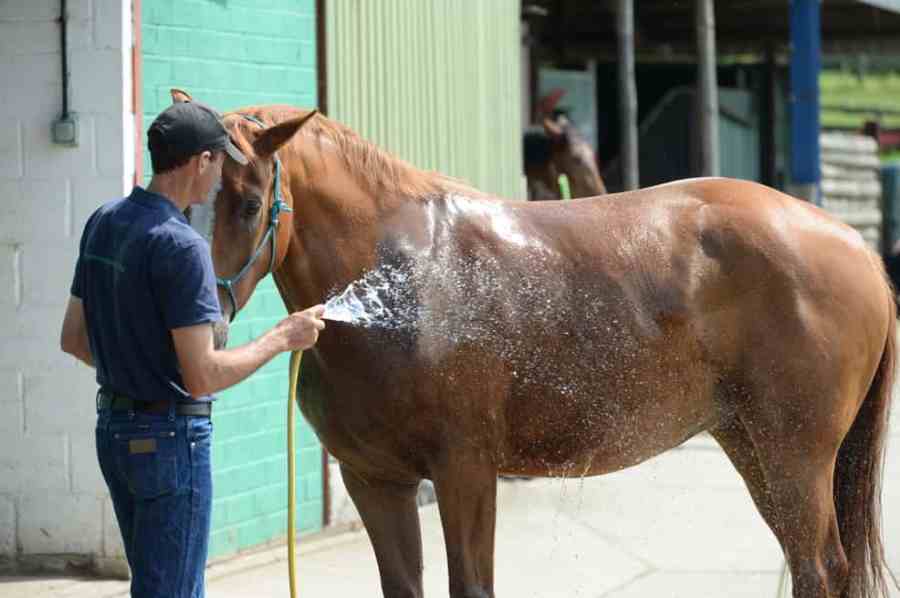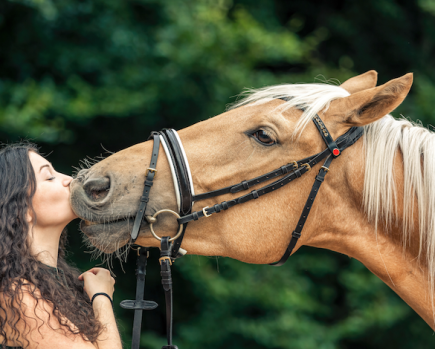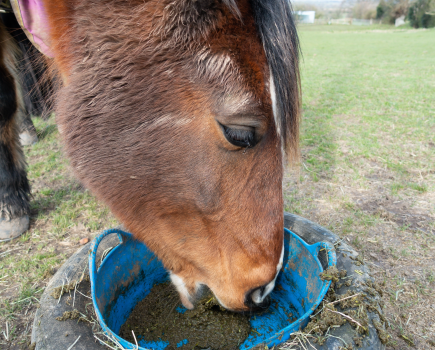Many horses cope well with the heat, but when the ambient temperature is hot and your horse is too, then it is important to help them cool down as sweating alone is not always enough. Your Horse asked equine scientist Dr David Marlin about the correct action to take so that you are armed with the best advice when taking care of a horse in summer.
5 effectives ways to keep a horse cool
1. Decide if he should stay in or go out
Brick stables with ventilation can stay cool, so your horse might be more comfortable inside rather than in his field. In comparison, wooden stables can get very hot during the day so he might be best to go out, especially if he can find shade under trees or has access to an open field shelter.
2. Avoid exercising in the heat
The hottest part of the day in summer is from 10am to 8pm, so try to avoid riding during these times unless you are specifically acclimatising your horse to the heat. In the UK, our horses are not currently acclimatised to temperatures above 30°C.
3. Make sure clean water is available
If water intake is reduced, your horse is at risk of impaction colic. To help encourage drinking, you can add 25ml of salt if he is a poor drinker.
4. Hose him down
If your horse seems uncomfortable or sweaty, then you can hose him off and let him dry naturally up to four times per day. Don’t scrape the water off — this actually slows down the cooling effect.
5. Act fast for heatstroke
If you, your horse or dog have heatstroke then cool them down as quickly as possible. This can be done by hosing or spraying them with water, ideally 10-20°C. This could come from an outdoor or indoor water supply, river, pond or even cold bottled water — it doesn’t have to be ice cold to be effective, as long as you use a lot.
Cooling myths
There many myths surrounding the best ways to cool your horse down when he’s hot. It’s important to understand the best way to cool down your horse so you can help him avoid heat exhaustion, which can lead to brain damage, organ failure and other serious, potentially fatal problems.
Cooling hot horses with cold water does NOT:
- Cause muscle damage
- Cause laminitis
- Induce shock
- Give horses heart attacks
- Prevent them from cooling down by constriction of skin blood flow
Water left on horses does NOT:
- Insulate and prevent heat loss
- Cause them to overheat
It is NOT more effective to:
- Start at the feet and work up
- Scrape water off while cooling – it actually causes the horse to warm up
- Focus on large blood vessels
- Cover the horse with wet towels
About the expert: Dr David Marlin is an equine scientist with 30 years’ experience in physiology and biochemistry. He has worked with the FEI and International Olympic Committee as a consultant to the British Equestrian Teams since 1994, and attended the Tokyo Olympics as the FEI’s Climate Mitigation Advisor.
Look what’s inside the latest issue of Your Horse









